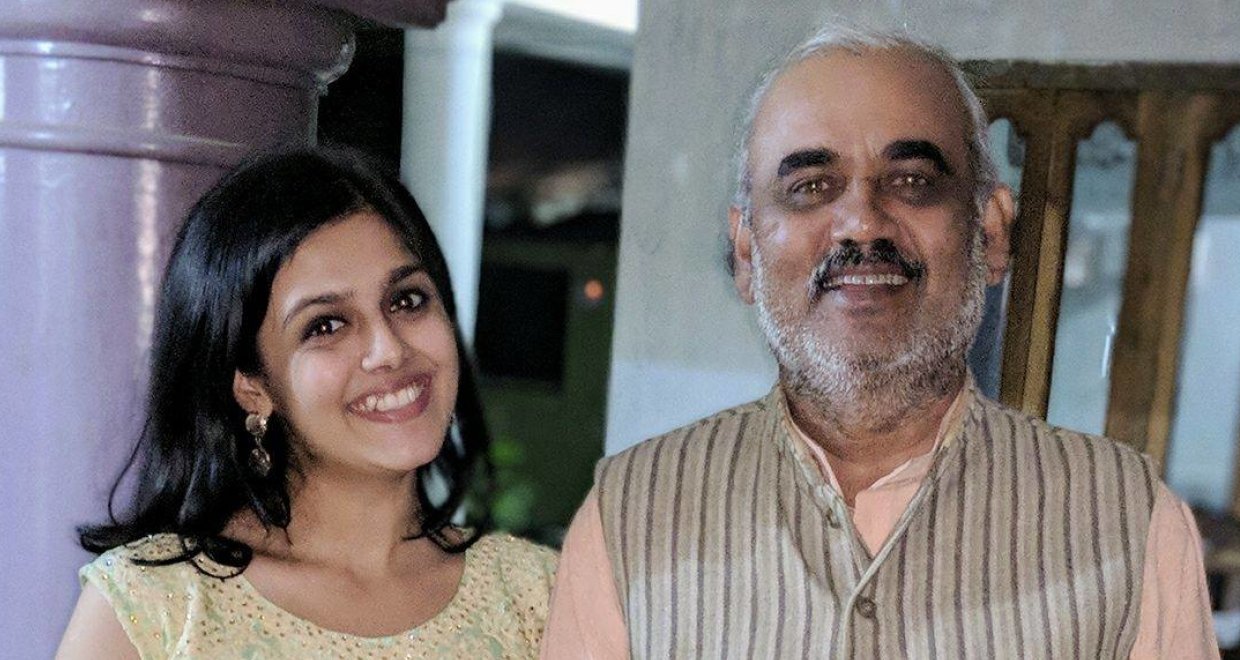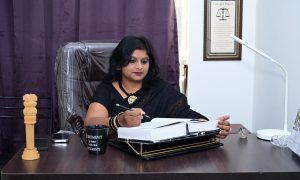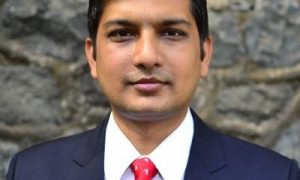Tapasya Parihar is a graduate of ILS Law College, Pune in the Batch of 2015. After graduating from one of the most premier law schools in the country, she decided to pursue a career in Civil Services. She shares her valuable insights with our readers on her experience with the UPSC along with advice on how to crack the toughest exam in the world.
In this interview, we talk to her about:
- Her reasons for choosing law
- Advantages of having law background in CSE
- Her advice for our readers on cracking the CSE.
HOW WOULD YOU LIKE TO INTRODUCE YOURSELF TO OUR READERS?
I hail from a small village in Madhya Pradesh. My father is a farmer and my mother is the Sarpanch of the village. I did my schooling from Kendriya Vidyalaya Narsingpur. Thereafter, I did my graduation in Law from ILS Law College, Pune.
PLEASE TELL US ABOUT YOUR PRE-COLLEGE LIFE. DID YOU ALWAYS PLAN ON PURSUING CIVIL SERVICES?
I decided to pursue civil services after I got my 12th board exam results. I had got a good rank in the merit list and that is when I decided that I would prepare for UPSC CSE.
HOW DID YOU DECIDE TO PURSUE LAW?
My stream was science in twelfth std., but I didn’t want to go for engineering. Moreover, one needs to be a graduate to appear for the CSE. Therefore, I chose law keeping in mind my long-term goal of joining civil service, as I believed the study of law would facilitate better administration.
WOULD YOU SAY YOUR BACKGROUND IN LAW HELPED YOU IN PREPARING FOR CIVIL SERVICES?
Yes, it definitely did. Basically, there is an overlap between the law syllabus and the GS subjects. Also, understanding of law helped me understand the newspaper articles better, especially the polity related issues and international affairs. Moreover, a study in law develops a different attitude, which makes a person more aware of the Constitution, rights and duties of the people and various other social issues, which come in handy during the preparation for civil services.
WHEN DID YOU START PREPARING FOR CIVIL SERVICES?
I started preparing immediately after finishing law school, i.e., in 2015.
HOW DID YOU START PREPARING FOR THE CIVIL SERVICES EXAM? DO YOU THINK COACHING IS A PREREQUISITE TO CRACK THIS EXAM?
I came to Delhi to prepare for the exam and I joined a coaching class therefor. However, I would not say that coaching is a prerequisite to clear this exam. It actually depends on the person and his/her level of understanding of the basic subjects. And after having a bad experience with the coaching class, I would suggest the aspirant to go for self-study, as the reading material required to study for this exam includes NCERT books and graduation level reference books, which need not be taught in any class.
WHAT WAS THE ROUTINE YOU FOLLOWED EVERYDAY THROUGHOUT THE COURSE OF YOUR PREPARATION?
My everyday plan was part of a bigger plan wherein I had divided the syllabus into different subjects, which were to be completed in a certain number of days. Then, every day I would make a to-do list of all the topics to be covered from that particular subject on that day. Also, to study effectively, I had divided my day into different sessions of 45 minutes each with a break of eight minutes. This I did with the help of an application that has the Pomodoro Clock (I used the Goodtime app, but many more apps like this are available on Google Play Store).
WHAT WAS YOUR STUDY PATTERN, THE MODE OF STUDY (ONLINE, OFFLINE ETC.,) PLEASE MENTION SOME OF THE BOOKS YOU REFERRED TO AND HOW DID YOU GO ABOUT PREPARING FOR EACH STAGE OF THE EXAM?
My study pattern was a mix of both. Some topics I did from the NCERT books and the reference books, the remaining I did from various online sources which include online portals like www.insightsonindia.com, www.iasbaba.com and www.mrunal.org
Some of the books I referred are as follows:
- Polity- NCERT (std XI and XII), Laxmikanth and books by Shubhra Ranjan on model questions and answers
- Geography- NCERT (std XI and XII), GC Leong and Atlas for maps
- Modern Indian History – NCERT by Bipan Chandra and Spectrum publication’s book
- Ancient and medieval history- book by NIOS and Tamil Nadu State board book
- Art and Culture- Nitin Singhania
- Environment and ecology- Shankar IAS
- Economy- Vision IAS notes and Ramesh Singh
- Science and technology- book by Vajiram and Ravi
- Current affairs- newspaper, monthly current affairs booklets by Vajiram and by Vision and PT365 by vision and revision modules by insightsonindia
- Security issues – vision notes
- Social issues- Internet
- International affairs- monthly current affairs booklets
- World history – vision IAS notes
Now, the exam has three stages, which need different approaches.
- The preliminary examination is objective in nature, thus the focus has to be on conceptual clarity and question-solving aptitude. I suggest one must solve two to three test series and revise the test solutions and take the same tests again.
- Mains need an analytical approach and the ability to interconnect the various aspects of the topic. Here, answer-writing practice is very important, as that is the only way to fetch more marks and secure a good rank. For this, one again needs to join 1- 2 test series. I also suggest writing daily answers, for which the questions are available on insights and iasbaba and various other websites. I suggest the answers to be written in the pattern wherein it contains the introduction, body and conclusion.
- For the interview, one needs to know oneself well, keeping in mind the DAF and practice speaking the answers in a coherent and logical manner.
WHAT DID YOU DO TO KEEP YOURSELF MOTIVATED ALL THE TIME DURING THE COURSE OF PREPARATION?
Motivation is a very important part of this exam, as the time period of this exam itself is long which makes the whole process tiring. I used to motivate myself by writing a diary, talking to my parents, by thinking about my goal and how important it was to keep going, by thinking about my journey and last but not the least, the idea that I didn’t want to regret not giving my best to this exam.
However, I generally enjoyed the whole process as I was getting to learn so much and I guess due to this, I did not have too many low points in the preparation.
WHAT IS YOUR EXPERIENCE WITH THE PREPARATION THAT IS REQUIRED FOR THE CIVIL SERVICES?
I believe the preparation that is required to clear this exam needs to be according to the syllabus and one needs to have the conceptual clarity and ability to analyze issues from different perspectives. Preparation requires hard work with complete dedication and honesty.
COULD YOU PLEASE GIVE SOME TIPS TO THOSE ASPIRANTS WHO ARE PREPARING FOR THIS EXAM? HOW SHOULD THEY GO ABOUT PREPARING DIFFERENT SUBJECTS LIKE GENERAL AWARENESS, OPTIONAL PAPER OF LAW?
The first step is to go through the syllabus and the previous years’ question papers. Then, I would suggest that one should watch a few videos of toppers about their strategy and book sources and then make a customised plan keeping in mind her strengths and weaknesses. For every stage of the exam, revision and test series are the most important factors that need to be given equal weight in the plan. Thereafter, the plan needs to be executed properly.
For general awareness, newspaper reading is a must. I suggest reading the Hindu and the Indian Express daily.
For the optional paper, I recommend making notes on all the subjects in the syllabus from the books the law graduate refers to in the college. Along with that, notes on legal current affairs also need to be prepared as the questions are generally related to current affairs.
WHAT DID YOU DO TO KEEP YOURSELF ABREAST OF ALL DOMESTIC AND INTERNATIONAL CURRENT AFFAIRS? HOW DID YOU STUDY FOR STATIC GENERAL KNOWLEDGE?
The NCERT books cover the basic static general knowledge. Some parts of the syllabus can be covered by making use of the vast variety of material available online. I followed the websites like www.insightsonindia.com and www.iasbaba.com, which have been very helpful in the entire duration of my preparation. They have various free of cost initiatives to cover the current affairs, which complement the newspaper reading.
PLEASE TELL US ABOUT YOUR INTERVIEW? HOW SHOULD A LAW STUDENT APPROACH THE INTERVIEW FOR THE CIVIL SERVICES EXAM?
There are three important things to be done to prepare for the interview.
- Thorough preparation of DAF related questions
- Revision of basic mains syllabus, current affairs and the graduation subject
- Mock interviews
Interview preparation must be focused on the way one structures her answer and presents the same.
WHAT WOULD BE YOU MESSAGE TO THE LAW STUDENTS WHO WANT TO PURSUE THEIR CAREER IN THE FIELD OF CIVIL SERVICES?
Be thorough with your optional subject, prepare notes keeping in mind the previous years’ papers and revise accordingly. Work hard with complete honesty and the exam becomes easier to clear. All the best!


























